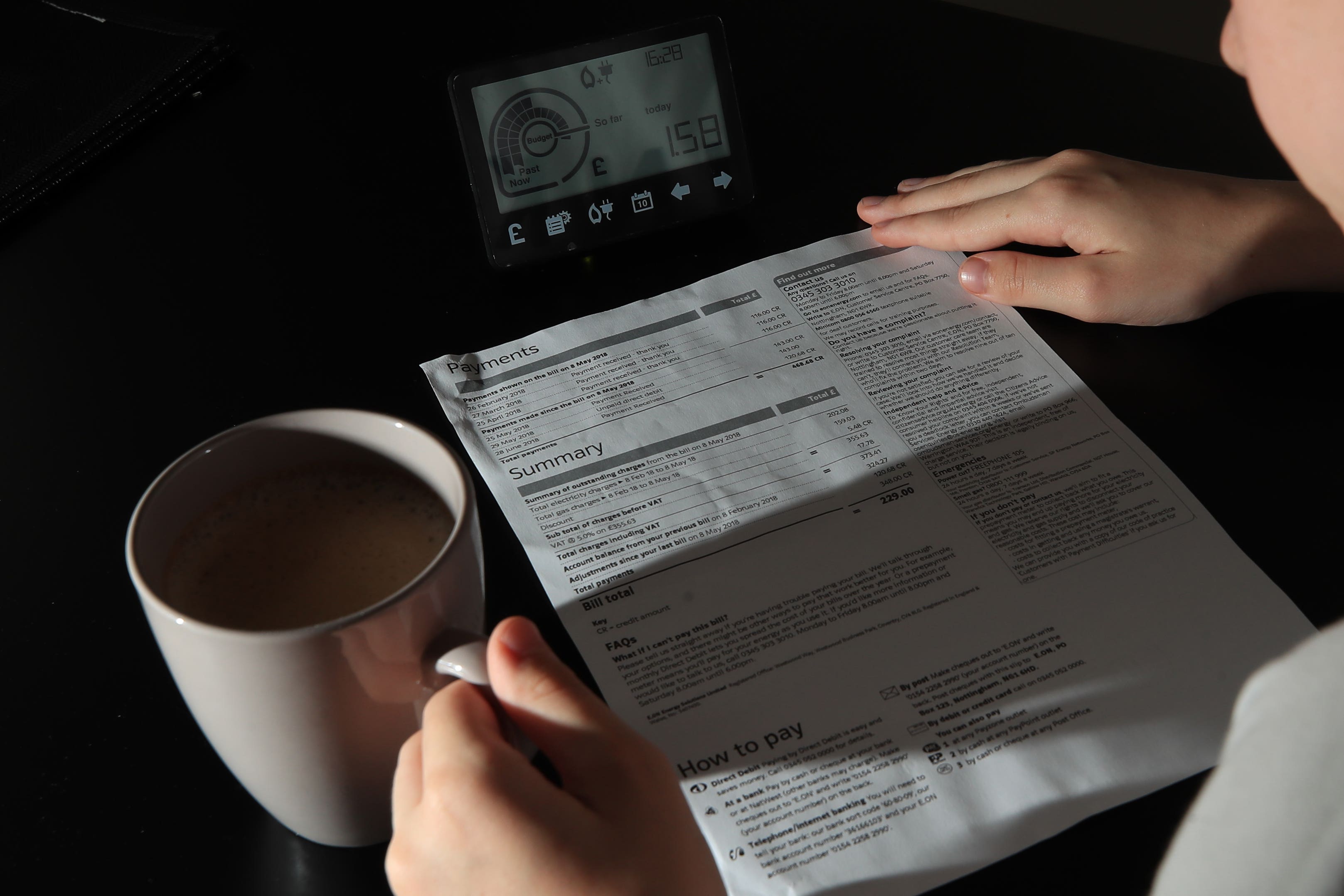High energy prices will harm children’s development, charities warn
Some 24% of parents are buying less food since the start of the year in order to afford essentials, a survey suggests.

Your support helps us to tell the story
From reproductive rights to climate change to Big Tech, The Independent is on the ground when the story is developing. Whether it's investigating the financials of Elon Musk's pro-Trump PAC or producing our latest documentary, 'The A Word', which shines a light on the American women fighting for reproductive rights, we know how important it is to parse out the facts from the messaging.
At such a critical moment in US history, we need reporters on the ground. Your donation allows us to keep sending journalists to speak to both sides of the story.
The Independent is trusted by Americans across the entire political spectrum. And unlike many other quality news outlets, we choose not to lock Americans out of our reporting and analysis with paywalls. We believe quality journalism should be available to everyone, paid for by those who can afford it.
Your support makes all the difference.Charities have warned that high energy prices will harm children’s development this winter after a survey found a quarter of parents have already cut back on the amount of food they buy.
Some 24% of parents are buying less food since the start of the year in order to afford essentials, 28% have cut back on the quality of food and 13% have eaten cold meals or meals that do not require cooking to save money on energy bills, the poll of more than 4,000 UK households by YouGov for the charity National Energy Action (NEA) and the Food Foundation found.
The average household energy bill will rise from £1,971 to a frozen £2,500 from October 1 under the energy price guarantee announced by Prime Minister Liz Truss earlier this month.
Overall, household bills will be 96% higher than last year.
NEA said the number of UK households in fuel poverty will have increased from 4.5 million last October to 6.7 million now.
The Government’s plan only caps the cost per unit that households pay, with actual bills still determined by how much energy is consumed.
The survey also suggests that 67% of parents are worried that energy prices will mean they have less money to buy food for their household while 51% are worried about the coming winter and its impact on their family’s health.
NEA chief executive Adam Scorer said: “People have had to choose between heating and eating.
“This winter millions will not have even that choice.
“The most vulnerable, including children, will be cold and hungry as energy prices spiral, despite Government support.
“The impacts on health and wellbeing are devastating and will only get worse after Saturday’s price rises.
“It’s a public health emergency.
“More targeted and enduring support, like an energy social tariff, is crucial if the most vulnerable are to get through winter warm and fed.”
The findings come as Citizens Advice warned that almost half a million more households could be forced onto more expensive prepayment meters by the end of the year because they have fallen into debt.
Under current rules, energy companies can push a household onto a prepayment meter when they cannot pay their bills, meaning they have to top up in advance, are unable to spread the cost of winter across the year and pay higher rates.
The advisory service predicts households on prepayment meters could spend £258 more on their energy this winter than someone paying by direct debit.
Citizens Advice chief executive Dame Clare Moriarty said: “Energy companies have a duty to protect customers, but forcibly moving people in debt onto prepayment meters is disconnection by the backdoor.
“Even with the bill freeze in place, the cost of energy will still be at a record high. If people can’t afford to top up, they’re at real risk of the heating going off and the lights going out.
“The Government must bring in a winter ban to stop energy companies forcing people already struggling onto prepayment meters. It should also bring in targeted support to help people on the lowest incomes pay their bills.”